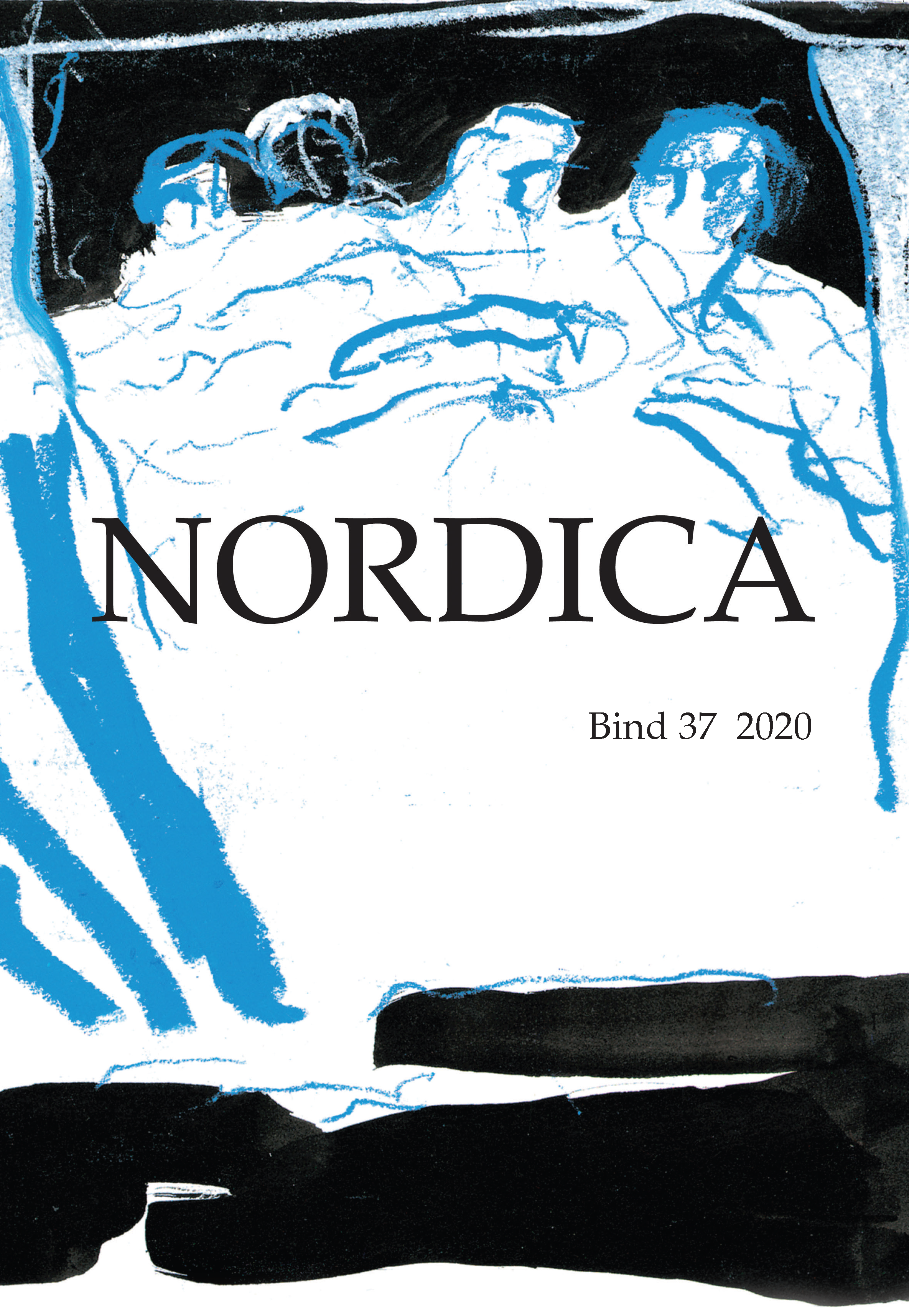Establishing a perspective from Knuth Becker to other realistic writers critical of society and religion
Keywords:
Knuth becker, Hans Kirk, Otto Gelsted, Erik Aalbæk Jensen, Indre Mission, religious criticism in Danish literature, religious language, ethics, nihilismAbstract
Knuth Becker (1891-1974) can be compared with other realistic writers and writers critical of society and religion – in particular Indre Mission – e.g. Hans Kirk (1898-1962) in the novel Fiskerne (1928) and Erik Aalbæk Jensen (1932-1997) in the novel Perleporten (1964) and its sequel Kridtstregen (1976). Both writers are critical but have – for different reasons – also some sympathy towards Indre Mission. Among the writers critical towards religion can also be counted Otto Gelsted (1888-1968) with his criticism aimed at catholicism. Kirk as well as Gelsted move from radicalism to communism. Becker, on the other hand, has never announced his political orientation, but his works express an obvious solidarity with the individual, who is suppressed by those in power who in their own imagination are the just.
Kirk’s Fiskerne is based on a marxist analysis. The poor and the hard-working (and quite fanatic) fishermen belong to Indre Mission, because strict morals and expectation of the hereafter belong together. Their hard-working attitude and social solidarity should, according to Kirk, develop towards the revolutionary.
Aalbæk Jensen is a Christian and has worked as a minister – and has also been a member of the resistance movement during the German occupation of Denmark during World War 2. He understands the spiritual longing in the religious language but rejects fanaticism and moral suppression of the natural zest for life. The religious and ethical discussion in Perleporten and Kridtstregen is focused on the depiction of two young men, Bertel and Hardy, who during the occupation are attracted by the substitute religion of Nazism and volunteer to served in the German army. In the moment of defeat, they must realise that they have made the wrong choice. One of them claims that all ethical values are subordinate to power. The victor writes the history. If Germany had won the war, they would both have been on the right side. Thus Bertel relativises all values. The other character, Hardy, has a backgrund with Indre Mission and Christian faith becomes meaningful to him again. Therefore, he persist that personal responsibility is something absolute. Responsibility tells the human being that there is an absolute difference between good and evil even though, sometimes, it can be difficult to see the borderline. Here Hardy serves as the mouthpiece of the author.
Downloads
Published
Issue
Section
License
© Redaktionen, forfatterne og Syddansk Universitetsforlag
NORDICA følger danske retningslinjer for ophavsret.
Artikler og anmeldelser, der sendes til redaktionen, må ikke tidligere være publiceret og må heller ikke være sendt til et andet tidsskrift med henblik på at komme i betragtning til at blive publiceret.
Du må downloade, printe, distribuere i dit universitets Learning Management System og linke til artikler/anmeldelser.
Du må ikke genudgive artikler/anmeldelser i andre tidsskrifter eller hos andre forlag hverken gratis eller kommercielt, medmindre rettighedshaverne giver tilladelse til det.
Artikler og anmeldelser må gerne uploades i PURE eller andet institutionelt repositorium i den accepterede, fagfællebedømte version, når det er uploadet på tidsskrift.dk – dvs. 12 mdr. efter publicering i Nordica på Syddansk Universitetsforlag og gerne med en reference hertil. Du kan også linke til tidsskrift.dk.
Open Access
NORDICA tilbyder Open Access til tidsskriftets indhold på baggrund af princippet om, at gratis offentlig adgang til forskning understøtter en større global udveksling af viden.

